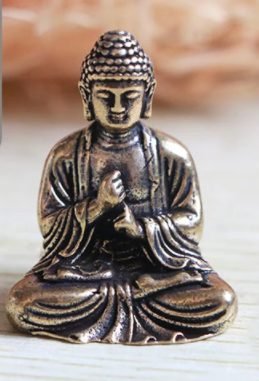Buddha about Love - Buddha about life
As blood nourishes the heart and keeps it flowing, so love nourishes spiritual freedom and keeps it flowing.
The bond is so strong that Buddhism, also known as the Path of Freedom, could be described as a religion of love.
Perhaps this is what the Dalai Lama meant when he said his religion is kindness.
Love, according to the Buddha, is one of the paths to complete spiritual liberation.
If we call Buddhism a religion of love, we must define what we mean by love, or more specifically, what types of love we include.
Because freedom is the ultimate guide, measure, and goal of all things Buddhist.
Indeed, in keeping with the general practise of Buddhist teachings, Nhat Hanh delivers distilled infusions of clarity, employing simple language and metaphor to address the most fundamental concerns of the soul.
To receive his teachings, one must actively commit not to succumb to the Western pathology of cynicism, our flawed self-protection mechanism that readily dismisses anything sincere and true as simplistic or naive — even if, or precisely because, we know that all true truth and sincerity are simple by virtue of being true and sincere.
The philosophy of Buddha:-
This entry is really about the historical figure known as Gautama, who is considered by modern scholars to be the founder of Buddhism.
There have been other Buddhas in the past, and there will be more in the future, according to Buddhist teachings.
The title 'Buddha,' which literally means 'awakened,' is bestowed on someone who discovers the path to nirvana, or the cessation of suffering, and spreads that knowledge so that others can also achieve nirvana.
If the teaching that other Buddhas existed is correct, then Gautama is not the founder of Buddhism.
This entry will follow modern scholarship in taking an agnostic stance on the question of whether or not there have been other Buddhas, and also on the question of superhuman status and powers.
Understanding four noble truths eightfold path:
Buddhism is concerned with pain, suffering, moderation, balance, equanimity, self-discipline, purification, wisdom, virtue, kamma, rebirth, tolerance, loving-kindness, meritorious action, selflessness, universal compassion, the law of opposites, non-attachment, meditation, freedom, enlightenment, nothingness, nibbana, and all of these aspects blend together before they separate and become nothing.
The Eightfold Path of the Noble:
Correct comprehension (Samma ditthi)
Correct thought (Samma sankappa)
Correct speech (Samma vaca) Correct action (Samma kammanta)
Suitable means of subsistence (Samma ajiva)
Suitable effort (Samma vayama)
Correct mindfulness (Samma sati)
Correct concentration (Samma samadhi)
However, if a Buddhist is asked, "What did the Buddha teach?"
The correct answer is: The Four Noble Truths and the Noble Eightfold Path.
If pressed further, one should be able to define these teachings precisely, without hesitation, ambiguity, or reliance on one's own ideas.
In other words, it is critical that the Buddha's words are not distorted, either by ignorance or by one's own speculation.


Comments
Post a Comment